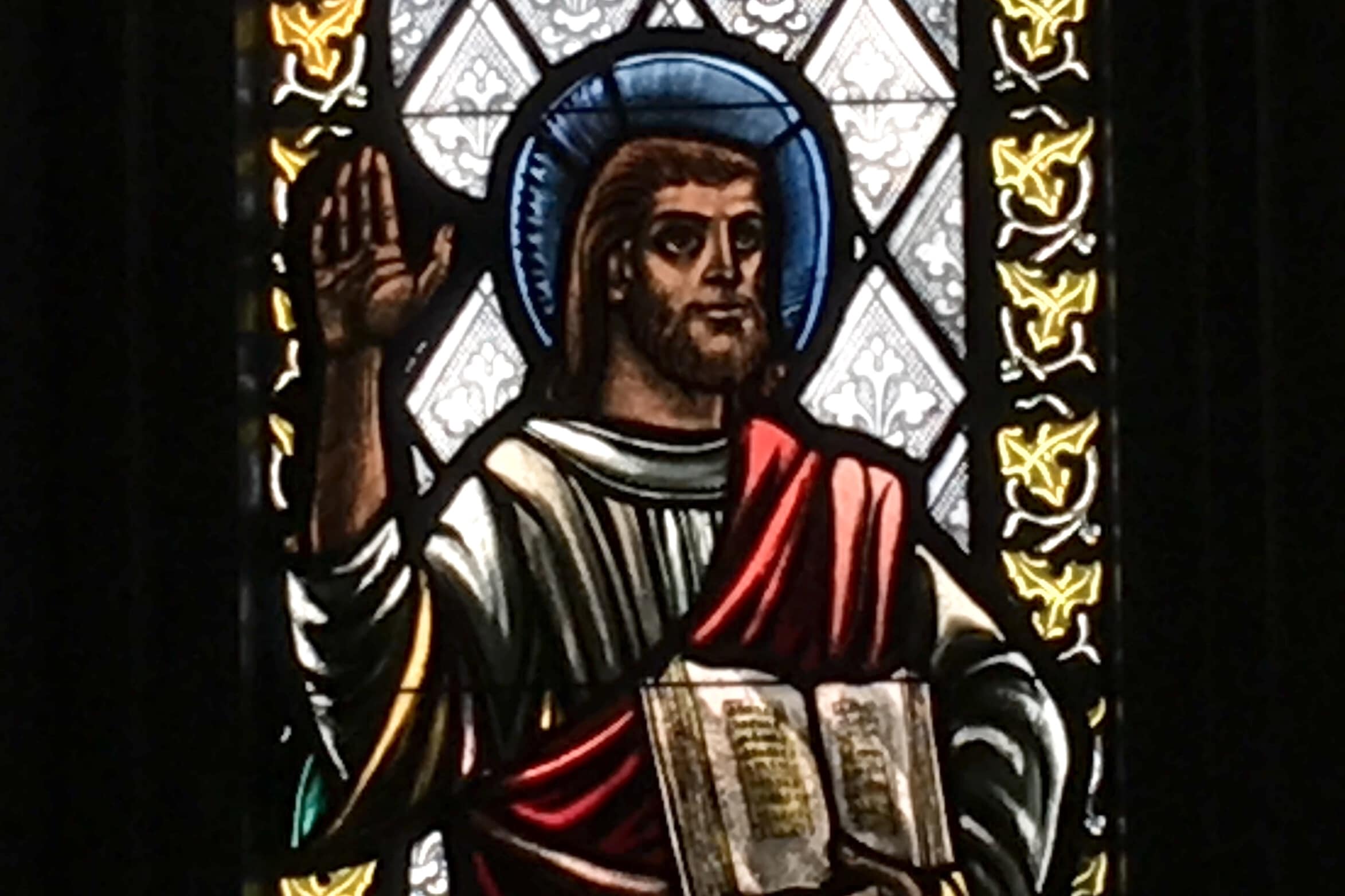St. James, Apostle and Martyr
Today we commemorate “St. James the Greater,”differentiating him from St. James the Less – “Less” meaning not less in significance, but younger. St. James and St. John (the Apostle and Evangelist), prior to following Jesus, were fishermen, working for their father Zebedee. They were two of the first to follow Jesus, immediately leaving their nets as Jesus called them to follow him, giving an example of great faith and obedience to Christ that is worthy of emulation. (As recalled in the Collect for the day.)
St. James, in addition to being one of the first to follow Jesus, was the first Apostle to give his life as a martyr, and the only Apostle whose martyrdom is recorded in the New Testament (in Acts 12:1-2, contained in the Lesson for the Epistle appointed for the day), being beheaded by Herod Agrippa likely in A.D. 44. St. James and St. John acquired the moniker “Boanerges,” meaning “sons of thunder,” for their intensity and temper, once desiring Jesus to call down fire on a Samaritan village, and having the boldness to ask Jesus for the seats to his right and to his left in his kingdom. Jesus’ response to this, recorded in the Gospel appointed for the day, is that leadership and greatness in the Christian community mean serving with humility, even as Christ served. St. James, along with St. Peter and his brother St. John, were the only three people to witness Jesus’ transfiguration and other significant events in Christ’s ministry, the three forming somewhat of an inner circle among the twelve Apostles.
The reason St. James’ feast day is on July 25 is uncertain, as the date of his martyrdom was likely around Easter. The Roman Martyrology states that July 25 was the date of the translation of his relics to the Santiago de Compostela Cathedral in Galicia, Spain. This cathedral is the destination of the Camino de Santiago (Way of St. James), a month-long walk across Spain and the most significant of Western European Roman Catholic pilgrimages. St. James is also the patron Saint of Spain, where post-biblical tradition says that he evangelized.
Following is an excerpt from a sermon by St. John Chrysostom on the Gospel reading appointed for today:
Let no man be troubled if we say that the Apostles were still imperfect, for the Mystery of the Cross was not then finished, and hence the grace of the Spirit had not yet been shed abroad in their hearts. If thou wouldest learn of their strength, consider what they became after the grace of the Spirit was given them, and thou wilt perceive that they had trodden under foot every vain desire. Their former great imperfections are therefore made known for a good reason; namely, that we may see how great a change could be forthwith wrought by grace. But nevertheless let us now look how they came unto Christ, and what they said. According to Mark they said: Master, we would that thou shouldest do for us whatsoever we shall desire. And he said unto them: What would ye that I should do for you? This he said, not that their wish was unknown to him, but so that they would uncover to him the hidden sore spot, and permit him to apply a remedy.
Their wish proceeded from earthly motives, and hence they were shy, and ashamed to express it openly. Wherefore they took Christ apart, and so asked him. For the Evangelist giveth us to understand that they went thus apart, lest the other ten overhear what they sought from the Lord. To me it seemeth most likely that they had heard how that the disciples should sit upon twelve thrones; and that they were fain to obtain for themselves the chiefest places at this enthronement. For they knew that the Lord loved them better than the most of the others. But they feared that Peter would still be preferred before them. Therefore they made bold to say, as recorded by Mark: Grant unto us that we may sit, one on thy right hand, and the other on thy left hand, in thy glory. They were even importunate in their prayer to him, saying: Grant: that is, Do it now! And what answered he? To shew that they were asking no spiritual gift, and that they did not even know what they were asking for (for they would not have dared to ask, had they known), Jesus said unto them: Ye know not what ye ask. That is, ye know not how great a thing this is, how wonderful, how this is a thing which is not even mine to give.
And he added: Are ye able to drink of the cup that I shall drink of, and to be baptized with the baptism that I am to be baptized with? Behold how he turneth their thoughts at once another way, speaking to them of things altogether different, as though he said: Ye come unto me treating of honours and crowns, but I speak unto you of conflict and travail. This is not yet the time of reward, neither is my glory immediately to be revealed; the present is a time of blood and sweat and tears. But note, too, how he giveth them courage, and inviteth them, by the manner of his questioning. He saith not: Are ye able to bear death? are ye able to shed your blood? But: Are ye able to drink the cup? Whereto he presently inviteth them saying: The cup that I shall drink of: that he may make them readier for the strife by knowing that it is a strife which they are to share with him.
(From The Anglican Breviary, 1336-7.)

